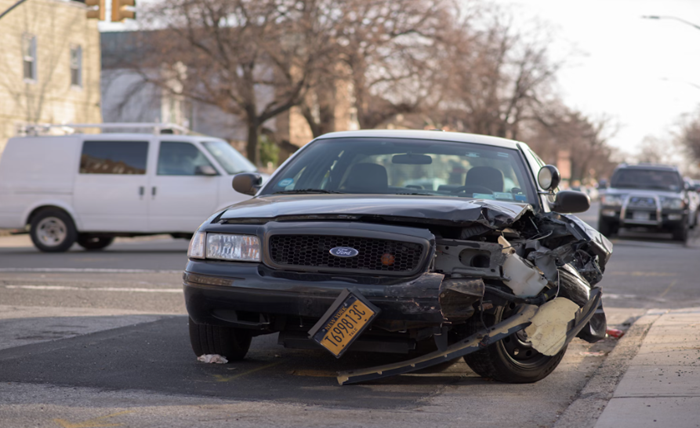Beyond the Wreckage: Examining the Psychological Effects of Car Crashes

If you’ve ever experienced a car accident, whether as a driver, passenger, or witness, you know firsthand the physical damage it can cause. But what about the unseen wounds—the psychological effects that linger long after the wreckage is cleared?
You might be wondering why the memory of that fateful moment still haunts you and why certain sounds or sights trigger anxiety or panic. The truth is, the impact of a car crash extends far beyond the metal and glass. This article aims to explore the often overlooked aspect of car accidents: their psychological effects on you.
Healing from PTSD
Healing from post-traumatic stress disorder (PTSD) after a car crash can be a challenging journey. You must seek professional help from therapists specializing in trauma. Therapy sessions may include cognitive-behavioral techniques to address triggers and negative thought patterns. Moreover, joining support groups offers a community of individuals who share similar experiences, fostering empathy and understanding.
The recovery process from PTSD following a car accident may exhibit a promising trend, as indicated by various studies reviewed by StudyCorgi. These studies suggest that psychiatric issues and symptoms tend to decrease in frequency after the initial month post-accident. However, if symptoms persist beyond the initial two to three months, it could signify a heightened risk of developing chronic PTSD.
This highlights the critical importance of effectively managing PTSD symptoms during the early stages of recovery to mitigate the potential for long-term psychological impact.
Rebuilding Confidence
Regaining confidence after a car crash is essential for moving forward positively. Start by acknowledging your progress and accomplishments since the accident. Reflect on the steps you’ve taken to overcome challenges and rebuild your life.
Effectively rebuilding confidence becomes increasingly vital in cities experiencing a surge in road traffic accidents. Take St. Louis, Missouri, for example, a city notorious for its hazardous roads. In recent times, St. Louis has observed a concerning uptick in road accidents.
In February of this year, tragedy struck as one individual lost their life, and two others sustained injuries in a two-car collision downtown. The incident occurred shortly before 8:30 p.m. at the intersection of North Tucker Boulevard and Convention Plaza.
TorHoerman Law highlights that accidents of this nature often lead to serious injuries such as head and brain trauma, broken bones, and spinal damage. These injuries necessitate urgent and expensive medical care, placing victims under significant financial strain. Additionally, these injuries frequently undermine the confidence of victims, emphasizing the importance of seeking legal assistance.
These trends underscore the need for competent legal advocacy to pursue rightful justice. A St. Louis car accident lawyer possesses the expertise to handle your case effectively, securing rightful compensation for your losses. Moreover, these legal professionals possess a deep understanding of local laws, facilitating seamless navigation through the complex legal terrain.
Finding Closure
Achieving closure after a car crash is vital for emotional healing and moving forward. Consider participating in rituals or activities that symbolize closure for you, such as visiting the accident site or creating a memorial for those involved. These actions can help provide a sense of closure and facilitate emotional acceptance.
Focus on forgiveness, both for yourself and others involved in the accident. Let go of any lingering resentment or blame and embrace forgiveness as a means of freeing yourself from emotional burdens.
Overcoming Survivor’s Guilt
Centerstone suggests that there are several effective methods for coping with survivor’s guilt.
- Recognize and address your emotions instead of suppressing them.
- Practice mindfulness to focus on positive aspects of yourself and avoid dwelling on regrets.
- Stay connected with supportive individuals instead of isolating yourself.
- Engage in acts of kindness to alleviate feelings of guilt and make a positive impact.
- Seek assistance from a qualified therapist to address and manage mental health challenges effectively.
Moreover, focus on self-compassion and forgiveness, understanding that you are not responsible for the outcome of the accident. Challenge negative thoughts and beliefs associated with guilt through cognitive-behavioral techniques. Practice gratitude for the gift of life and the opportunity to heal and grow from the experience.
Engage in meaningful activities that promote a sense of purpose and fulfillment. Consider volunteering or participating in support groups to connect with others who have experienced similar feelings.
Frequently Asked Questions (FAQs):
What Are the Psychological Effects of Being in a Car Accident?
Experiencing a car accident can lead to various psychological effects. Individuals may develop symptoms of PTSD, including flashbacks and nightmares. Anxiety and depression are common reactions, often accompanied by feelings of guilt and fear. Social withdrawal and difficulty concentrating may also arise.
How Long Does Mental Shock Last After Car Accident?
The duration of mental shock after a car accident varies. The duration can range from a few days to several weeks, and some individuals may continue to experience effects for months or more. Support and treatment can aid in recovery.
How Do You Mentally Recover from a Car Accident?
To mentally recover from a car accident, acknowledge your emotions and seek support from loved ones. Engage in self-care activities such as exercise and relaxation techniques. Consider therapy to address lingering trauma and promote healing.
In conclusion, exploring the psychological effects of car crashes reveals the complex journey individuals endure beyond the physical wreckage. From coping with trauma to rebuilding confidence, each aspect requires acknowledgment, support, and patience. Healing is a process, and by understanding these effects, we can better support those impacted and navigate the path to recovery together.
Read more about: naz-tricks




